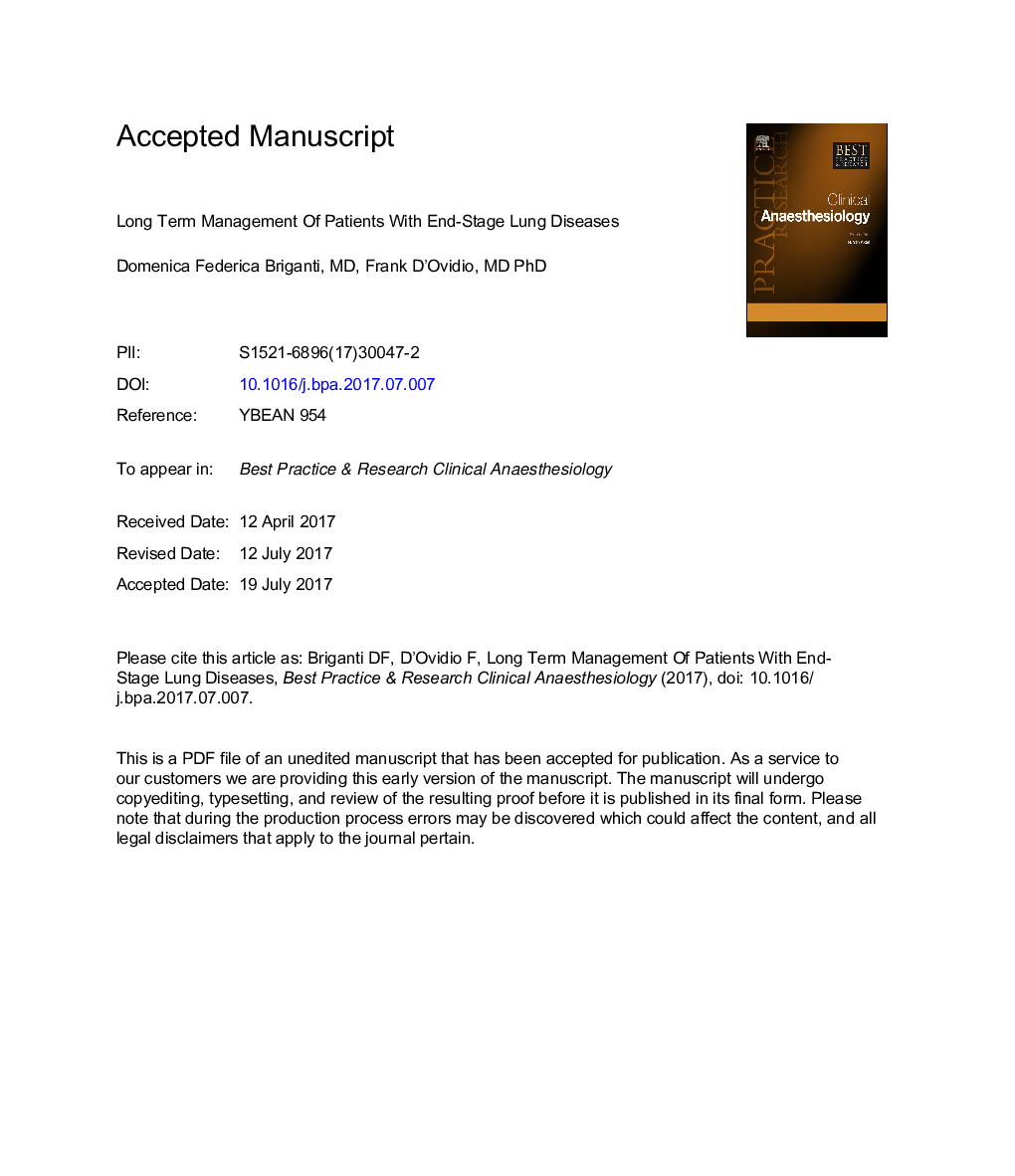| Article ID | Journal | Published Year | Pages | File Type |
|---|---|---|---|---|
| 8610917 | Best Practice & Research Clinical Anaesthesiology | 2017 | 26 Pages |
Abstract
Long-term management of end-stage lung disease differs from interstitial lung disease to chronic obstructive pulmonary disease to cystic fibrosis to pulmonary vascular disease. The management includes pharmacological therapy that is disease specific such as antibiotic therapy for cystic fibrosis, antifibrotic drugs in idiopathic pulmonary fibrosis; long-acting beta-agonists, long-acting muscarinic antagonist, and inhaled corticosteroids in chronic obstructive pulmonary disease; and vasodilators in pulmonary arterial hypertension. Moreover, non-pharmacological therapy is essential in the treatment of these diseases, in particular, rehabilitation and supportive therapy, which are necessary in all end-stage lung diseases and specific intervention such as non-invasive ventilation in chronic obstructive pulmonary disease and cystic fibrosis, surgical therapy in chronic obstructive pulmonary disease, and airway clearance in cystic fibrosis. The goal is not only to prolong survival, but it is fundamental to keep patients in good general conditions for transplantation. Transplantation, indeed, remains the only therapeutic option that could prolong survival in patients with terminal lung disease when medical or surgical therapies are not available or not effective anymore.
Keywords
Related Topics
Health Sciences
Medicine and Dentistry
Anesthesiology and Pain Medicine
Authors
Domenica Federica (Pulmonologist), Frank (Thoracic Surgeon),
